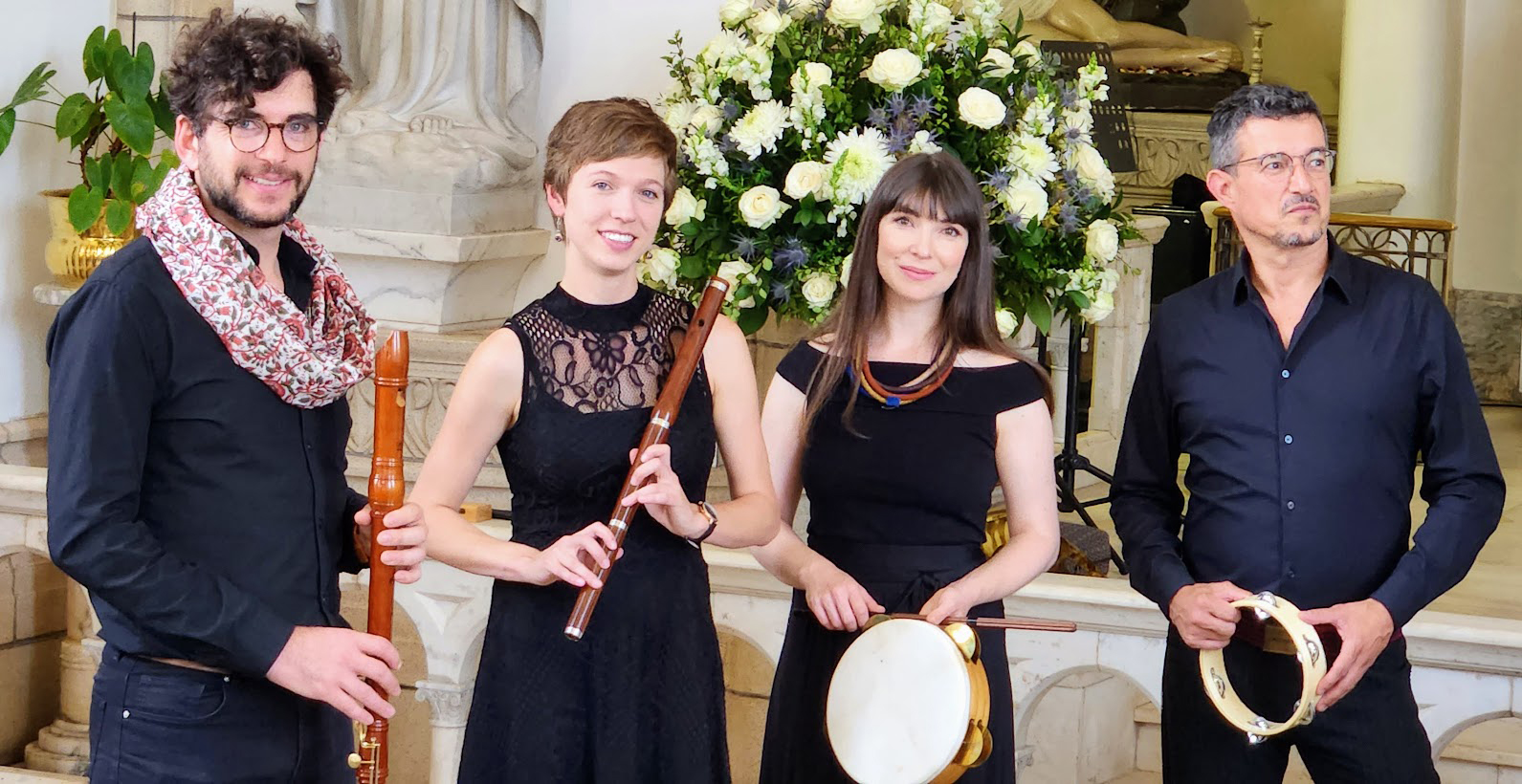click to dowload our latest edition
CLICK HERE TO SUBSCRIBE TO OUR NEWSLETTER


Published
1 year agoon
Johannesburg-based Jewish music aficionado, Adam H. Golding, has a passion for music, but in particular what’s known as Early Music, which includes Renaissance and early Baroque compositions.
His passion is so strong, he set up a full Renaissance instrumental and vocal ensemble in 2017 by seeking out a select group of musicians. Today, the African Renaissance Ensemble performs regularly for a variety of audiences in Johannesburg and Pretoria. Its aim is to share its love of scarcely performed music, written between 1400 and 1750.
This month, it’s performing a unique concert, Hidden Treasures of the Hebrew Baroque, dedicated to early Hebrew music. “It will be a journey of discovery of the birth of synagogue music,” says Golding. “There has never been a concert like this before in South Africa.”
“We had the first rehearsal in my flat with all modern instruments and musicians who weren’t familiar with the style or music at all,” said Golding. “Slowly, over the next few years, we started attracting specialists, and now the group is made up of people who are all absolutely passionate about Renaissance and Baroque music.”
The group began with just one violin, one guitar, and a cello. Today, it has more than 10 instrumentalists and five vocalists. “We’re also really lucky to work with harpsichordist and multi-instrumentalist John Reid Coulter,” said Golding, whom he referred to as “the absolute authority on early music in South Africa”.
Golding said he decided to form the ensemble after conducting a choir at a festival in Berlin that was dedicated to the music of Salamone Rossi, an Italian Jewish violinist and composer (1570-1630).
This year marks 400 years since the publication of Rossi’s Hashirim L’Shlomo, the first published collection of choral synagogue music, as well as the first music to be notated in Hebrew. The group will commemorate Rossi’s work as well as a selection of other Hebrew music from the Baroque period.
The African Renaissance Ensemble has collaborated with the Lewandowski Chorale (also founded by Adam Golding in 2012) for this concert. The concert will involve six vocal soloists and a choir of about 20, accompanied exclusively by reconstructed period instruments, including three baroque violins, a baroque viola and baroque cello, along with two traversos (a wooden baroque flute with a beautiful and mellow tone), a theorbo (a long neck lute – one of only two in the country), as well as harpsichords, recorders, and a mandolin.
“Rossi worked as court composer to the Gonzaga dukes of Mantua,” said Golding. “He was highly respected as one of the great composers of his time and one of the major composers to transition from the Renaissance into the Baroque.”
As a proudly Jewish composer living in Italy during the Renaissance period, Rossi didn’t compose church music instead composing Jewish liturgical music in a similar style. In 1616, he began setting traditional Jewish prayers and hymns to contrapuntal music in the vocal style of his time, according to Golding.
Synagogal music, up until this point, had been forbidden in shul services, as a form of mourning of the destruction of the Temple. Rossi was encouraged by Rabbi Leon Modena to publish his works in 1623.
Rossi’s music, however, fell into obscurity sometime after his death, and it was only about 200 years later that composers like Salomon Sulzer and Louis Lewandowski began composing choral music for synagogue that became the music we are familiar with today.
“The musical language of the early 17th century predates so many of the norms that we take for granted in music today,” said Golding. “It predates the concept of major and minor scales, and the tuning systems that were used at the time were different to ours. The instruments were different, and the way musicians thought about harmony was completely different. In fact, it even predates the concept of a chord. The music is intricate, light, joyous, deeply moving, and fresh.”
Golding believes early music is more accessible to a modern audience than classical music, resembling a folk style that’s enjoyable for audiences of all ages. The pieces are relatively short – usually less than 10 minutes – and are interspersed with explanations and anecdotes from Golding about the history of the pieces.
“Our concerts aren’t simply performances, rather, we use the music to weave together a story,” said Golding. The concerts are usually held in small, intimate venues to allow the audience to be fully immersed in the music.
“The music that will be performed in this concert bears no resemblance whatsoever to the music anybody is likely to have heard in a synagogue, aside from it being in Hebrew,” he said. The first half of the concert celebrates the music of Rossi, whilst the second part will feature the works of two non-Jewish composers, Carlo Grossi and Ludovico Saladin, who were commissioned by the Jewish communities in Venice and Provence to compose music to celebrate the occasion of Hoshana Rabbah and the ritual of a Brit Milah, respectively.
The concert will take place on 25 and 26 March at the state-of-the-art Wits Chris Seabrooke Music Hall, the only purpose-built concert hall in Johannesburg.
To find out more or book tickets, got to: earlymusic.co.za/concerts
